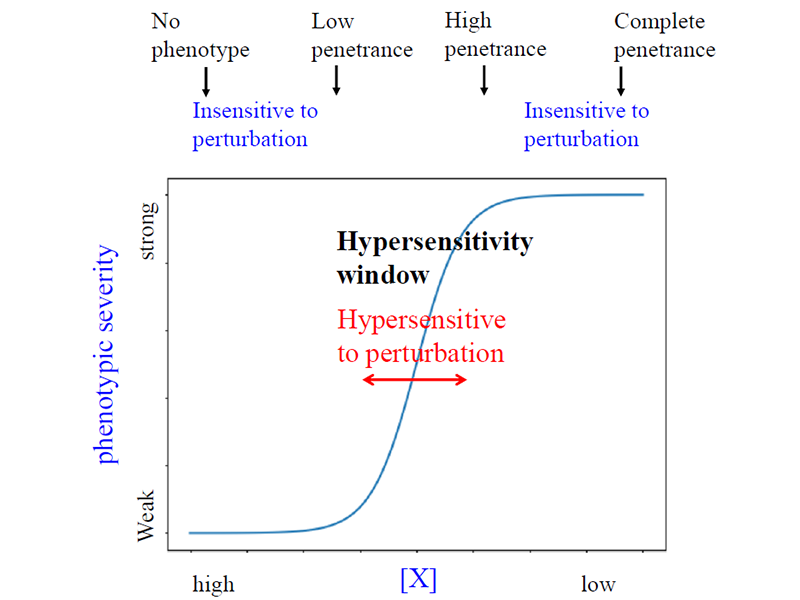Phenotypic heterogeneity in human genetic diseases: ultrasensitivity‑mediated threshold effects as a unifying molecular mechanism
Dr. Sun, Y. Henry - August, 2023
Phenotypic heterogeneity is very common in genetic systems and in human diseases and has important conse‑quences for disease diagnosis and treatment. In addition to the many genetic and non‑genetic (e.g., epigenetic, envi‑ronmental) factors reported to account for part of the heterogeneity, we stress the importance of stochastic fluctua‑tion and regulatory network topology in contributing to phenotypic heterogeneity. We argue that a threshold effectis a unifying principle to explain the phenomenon; that ultrasensitivity is the molecular mechanism for this thresholdeffect; and discuss the three conditions for phenotypic heterogeneity to occur. We suggest that threshold effectsoccur not only at the cellular level, but also at the organ level. We stress the importance of context‑dependenceand its relationship to pleiotropy and edgetic mutations. Based on this model, we provide practical strategies to studyhuman genetic diseases. By understanding the network mechanism for ultrasensitivity and identifying the critical fac‑tor, we may manipulate the weak spot to gently nudge the system from an ultrasensitive state to a stable non‑diseasestate. Our analysis provides a new insight into the prevention and treatment of genetic diseas
